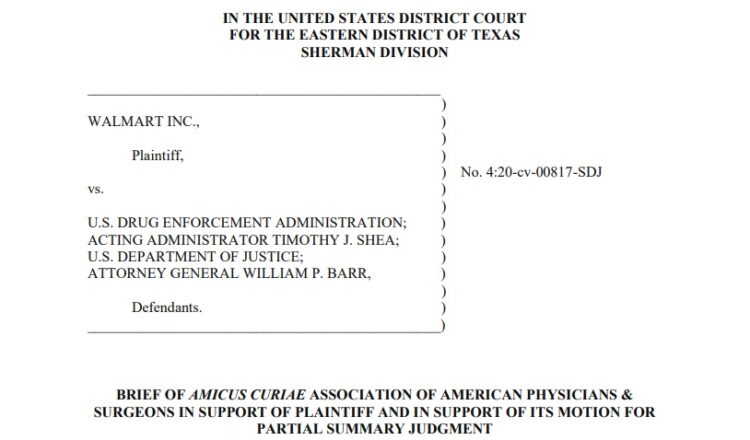Uninsured and other self-pay patients are facing increasing difficulty filling legitimate prescriptions for medically-appropriate pain medications in part due to one-size-fits all rules being imposed by the U.S. Drug Enforcement Administration.
As Marilyn Singleton, M.D., J.D., submitted as President of AAPS in comments to HHS in March 2019: “[T]oo often the unintended consequences created by past robotic, top-down policies resulted in harm to patients. Past policies incentivized the use of opioids even when they might not be in the best interest of patients. Now, the current shift to deterrence is improperly punishing pain patients and those trying to care for them.”
“Sadly, patients and the physicians caring for them have been unfairly targeted in the war on opioids,” reiterated Dr. Kris Held in remarks as AAPS President to the HHS Pain Management Task Force.
One “red flag” which the DEA tells pharmacies to use as a criteria in determining whether to dispense to patients is payment in cash.
AAPS, today, filed an amicus brief in support a legal challenge by Walmart seeking to stop this overreach of federal government into American medicine.
“The interference [from] D.C., with cash payments for medications outside of the Beltway is both ironic and lacking in due process for those wanting to pay or receive cash for legitimate transactions,” writes AAPS General Andrew Schlafly arguing for AAPS in the brief.
He continues, “[this] monitoring program circumvents important due process safeguards by forcing pharmacists to blacklist physicians and refuse to fill prescriptions based on arbitrary criteria such as payment by cash or geographic distance. This interferes with rights of patients and physicians, but they receive no notice of it and are given no opportunity to object. … In an infringement on basic rights, Defendants would punish pharmacies that accept cash from patients for medication which might be covered by insurance.”
The brief concludes: “While this case relates to controlled substances, about which there may be some empathy for more regulation, the legal principles at stake extend throughout the medical profession and across all types of economic activity.”
Read full brief: https://aapsonline.org/judicial/aaps-walmart-v-doj-12-7-2020.pdf




